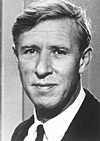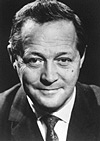Historical Advances in
Cholesterol Research
- Cholesterol was discovered in 1812 in
gallstones by physicians in France and in Germany but no reference has been
made to its discoverer(s).
- On August 26 1816, at a meeting of the French
Academy of Sciences the chemist Michel Chevreul suggested that a
substance, with fat-like properties, should be named cholesterine, from the
Greek: chole, bile, and stereos, solid. It later became known as
cholesterol.
- Schoenheimer suggested in the 1930s that there
was some kind of equilibrium between the amount of cholesterol which the
cell itself synthesized and its dietary cholesterol. How this equilibrium
was maintained was, however, completely unknown.
- Cholesterol
appeared in medical text books in the 1940s but its role heart disease and
stroke was not indentified until the late 1960s- early 70s.
- Bloch
and by Lynen
were awarded a Nobel Prize in 1964 for their discoveries concerning the
mechanism and regulation of the cholesterol and fatty acid metabolism"


Konrad Bloch and Feodor Lynen
http://www.nobel.se/medicine/laureates/1964/index.html
- A 1981 article in the New England
Journal of Medicine linked the consumption of large amounts of cholesterol
to death from coronary occlusion.
- Brown
and Goldstein were given the Nobel Prize for Medicine in 1985 for
their mechanism for "the regulation of cholesterol metabolism".


Michael S. Brown and Joseph L.
Goldstein
http://www.nobel.se/medicine/laureates/1985/index.html
Current Developments
Researchers at the Max Delbruck
Center for Molecular Medicine in Berlin and the Centre de Neurochimie in
Strasbourg, France, found in 2001 that cholesterol present in the brain plays a
key role in the formation of contact points between neurons. This is vital to
brain development and function and the research may lead to ways of treating
synapse damage following an injury or the development of diseases such as
Alzheimer's.
With regard to the treatment of high
blood cholesterol levels, AstraZeneca is one company developing a
second-generation or 'super' statin, ZD 4522 (licensed from Shionogi), in phase
III trials. This statin has demonstrated impressive high-density lipoprotein
('good') cholesterol elevating ability and a clean side effect profile (i.e. no
evidence of liver enzyme elevation).





